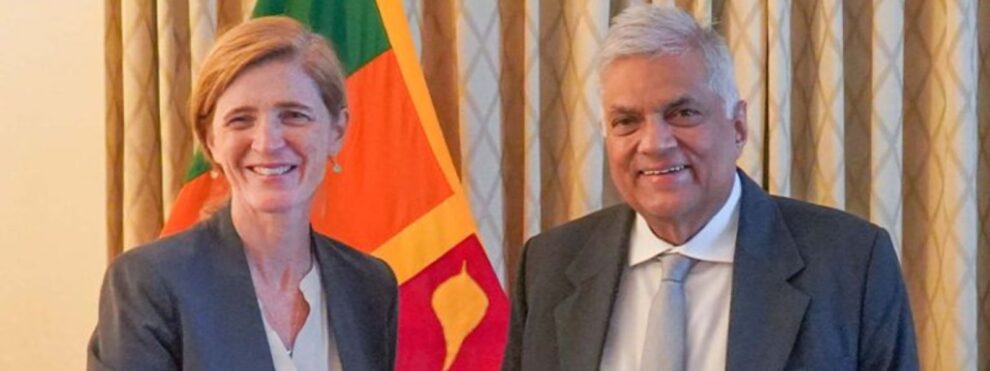COLOMBO (News 1st); USAID Administrator Samantha Power has spoken with Sri Lankan President Ranil Wickremesinghe, focusing on economic reform, democratic governance, and online freedom.
According to an official statement by USAID, the conversation delved into the importance of upholding democratic values, including a consultative legislative process and respect for freedom of expression and association.
Administrator Power emphasized strong U.S. support for these fundamental rights and encouraged President Wickremesinghe to address concerns regarding the Online Safety Act’s potential impact on online freedoms and the digital economy’s vitality.
The discussion also centered around Sri Lanka’s ongoing economic challenges and the crucial role of USAID in supporting the country’s recovery efforts. Administrator Power reiterated USAID’s commitment to working alongside the Sri Lankan government to overcome economic hardships.
Moreover, International Media reported that Sri Lanka would amend its strict new internet censorship law after opposition from global tech giants, who risked criminal prosecutions for content shared on social media.
The law as passed makes social media companies liable for any content posted on their platforms deemed offensive by Sri Lankan authorities.
A coalition of international tech companies warned Colombo last month the legislation was “unworkable” and that they would not cooperate with local authorities to implement it.
The Cabinet of Ministers considered a proposal on February 13th, 2024, to amend the recently passed Act on Online Safety. While approved by the Parliament and signed by the Speaker, concerns surrounding the Act have been raised by various stakeholders.
Notably, the Asia Internet Coalition and other international voices expressed concerns about potential shortcomings within the initial draft.
While acknowledged, these concerns were slated for post-enactment review by the ruling party.
Furthermore opposition parties and the Human Rights Commission noted the apparent omission of key considerations raised by the Supreme Court during deliberations regarding the original draft.
Given these ongoing discussions and the fact that the relevant Commission has yet to be established, the proposed amendments within just two weeks of the Act’s passage has raised concerns.















